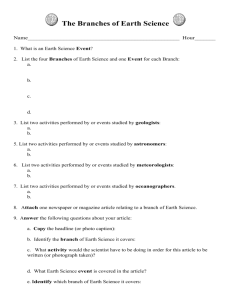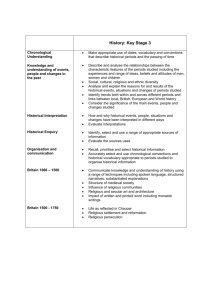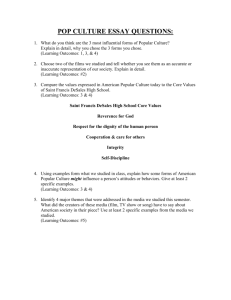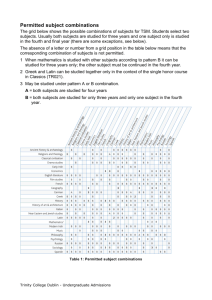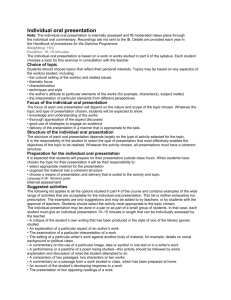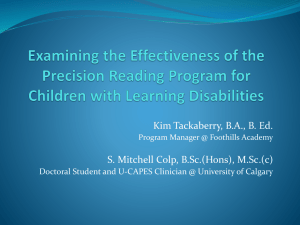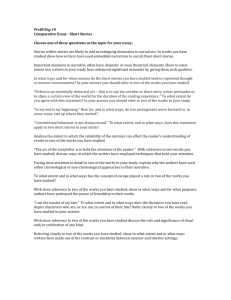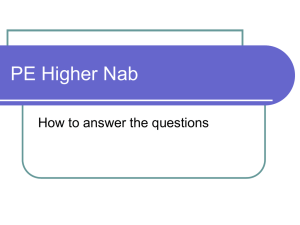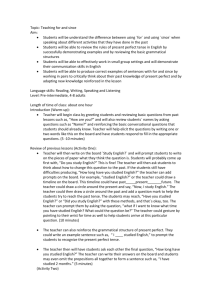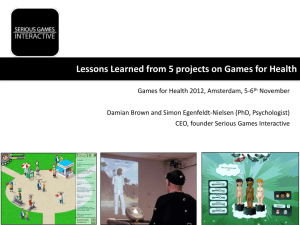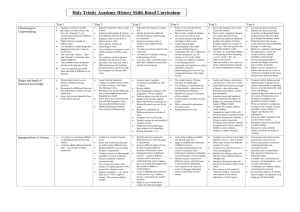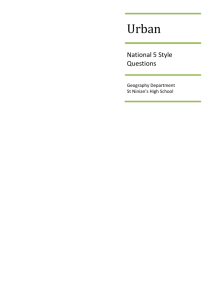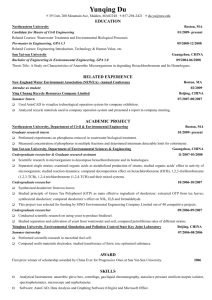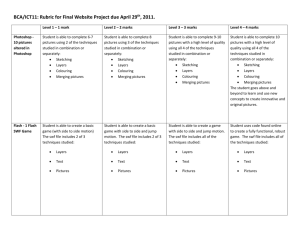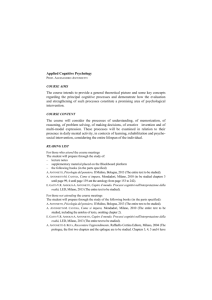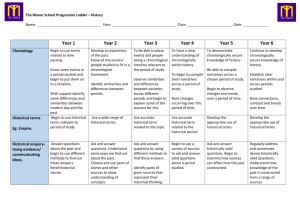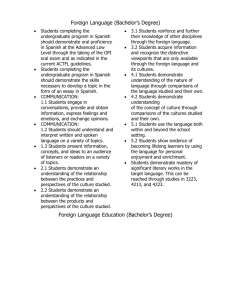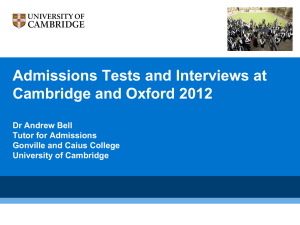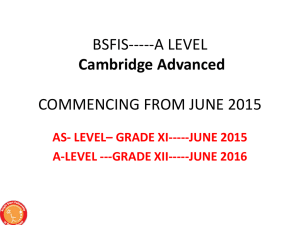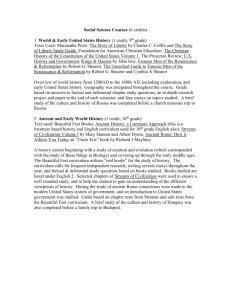Choosing a subject and writing a personal statement
advertisement
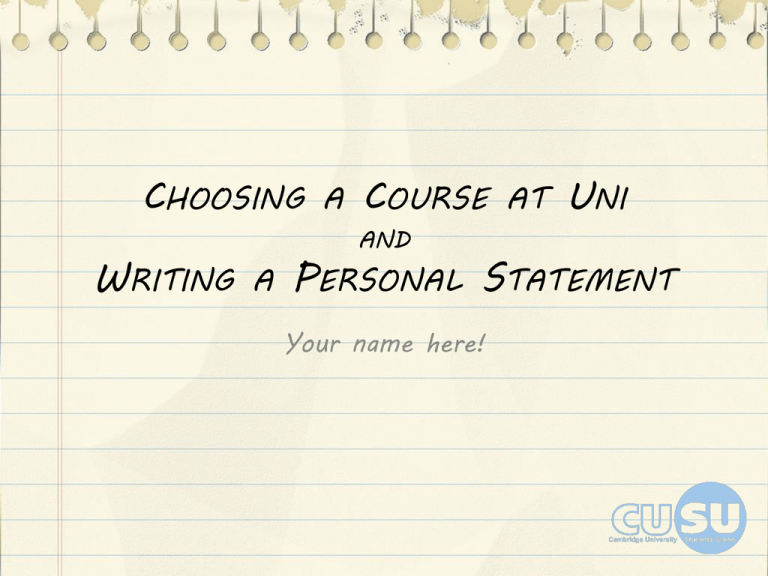
CHOOSING A COURSE AT UNI WRITING AND A PERSONAL STATEMENT Your name here! HOW TO CHOOSE THE RIGHT COURSE? • • • • Favourite subject? Career-based? Something different? Something you find interesting! DIFFERENT SORTS OF COURSE • Arts/Sciences – (Don’t let the names fool you!) • • • • Sandwich courses Language courses (year abroad?) Part-time courses Medical courses – Medicine, Veterinary Medicine, Dentistry… – Pre-clinical vs Clinical ONCE YOU’VE CHOSEN A COURSE… • Compare universities! – Course content, ranking – Location, facilities, size, accommodation • Be open to alternatives – You don’t have to have made up your mind until you actually apply! • Remember that course choice should be the most important factor in choosing a uni – but it won’t determine the course of your life! TASK 1 • Split up into groups of 3 • Write down a subject that one of you studies • List jobs or careers you think you could get into by studying that subject at university • Repeat for the other 2 people (don’t do the same subjects…) GUESS THE DEGREE! Jess Ennis, Olympic athlete Studied Psychology at the University of Sheffield Angela Merkel, German Chancellor Studied Physics at the University of Leipzig, Germany GUESS THE DEGREE! Mark Price, MD of Waitrose Studied Archaeology at the University of Lancaster Diane Abbott MP Studied History at the University of Cambridge GUESS THE DEGREE! James Blunt, singer-songwriter Studied Sociology at the University of Bristol (but started off studying aerospace manufacturing engineering!) Dara O’Briain, TV comedian Studied Maths and Theoretical Physics at University College Dublin THINK YOU NEED LAW TO BE A LAWYER? THINK YOU NEED ECONOMICS TO WORK FOR A BANK? MORAL OF THE STORY… • Don’t get too hung up on what your degree means for your future career – Don’t worry if you don’t have a concrete plan! – There are comparatively few jobs for which there is only one “correct” degree • The most important thing is to choose a course you’re interested in, and which you’ll enjoy! WHAT IS A PERSONAL STATEMENT? • Accompanies your application to university – Like a cover letter and a CV • Explain more about yourself • Explain why you’re interested in the course • Talk about your experience • Used by universities to assess potential students TASK 2 • Split up into pairs • Talk to the person next to you for 3 minutes about your favourite subject and why you want to study it • Talkers: Was it hard to talk about it for that long? • Listeners: Were you convinced by what they were saying? • How is this similar to writing a personal statement? How is it different? HOW TO WRITE A PERSONAL STATEMENT 1) Why are you applying? 2) Why are you enthusiastic about the course? What do you already know about the course? 3) Why would you be good at this course? • • • Studies/school work Work experience/volunteering Skills 4) Any other information? PERSONAL STATEMENT TIMELINE 1) Choose a course! 6) Get it checked! 2) Check entry requirements 5) Write a draft (at least a month before) 3) Go to Open Days and events (over summer) 4) Brainstorm / make a list 15th October: Oxford, Cambridge, any medical courses 7) Second draft (at least two weeks before) 8) Final checks! 9) Submit before deadline! 15th January: all other courses PERSONAL STATEMENT TIPS • 2/3 academic, 1/3 other • No more than 4000 characters, or 47 lines of text • No copying (either from each other or the internet) • Get plenty of advice from teachers, family members… – But remember that it’s your statement! FIND OUT MORE! UCAS: www.ucas.com Prospects: www.prospects.ac.uk Come on an Open Day! Cambridge Prospectus: www.study.cam.ac.uk/undergraduate Alternative Prospectus: www.applytocambridge.com Email me! access@cusu.cam.ac.uk
